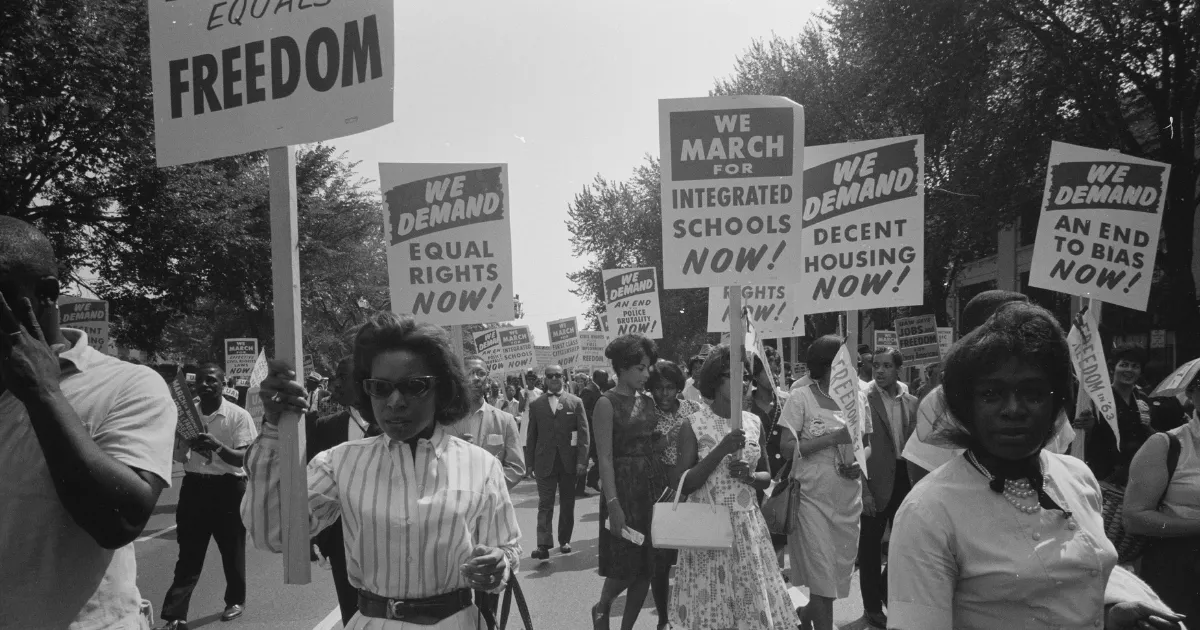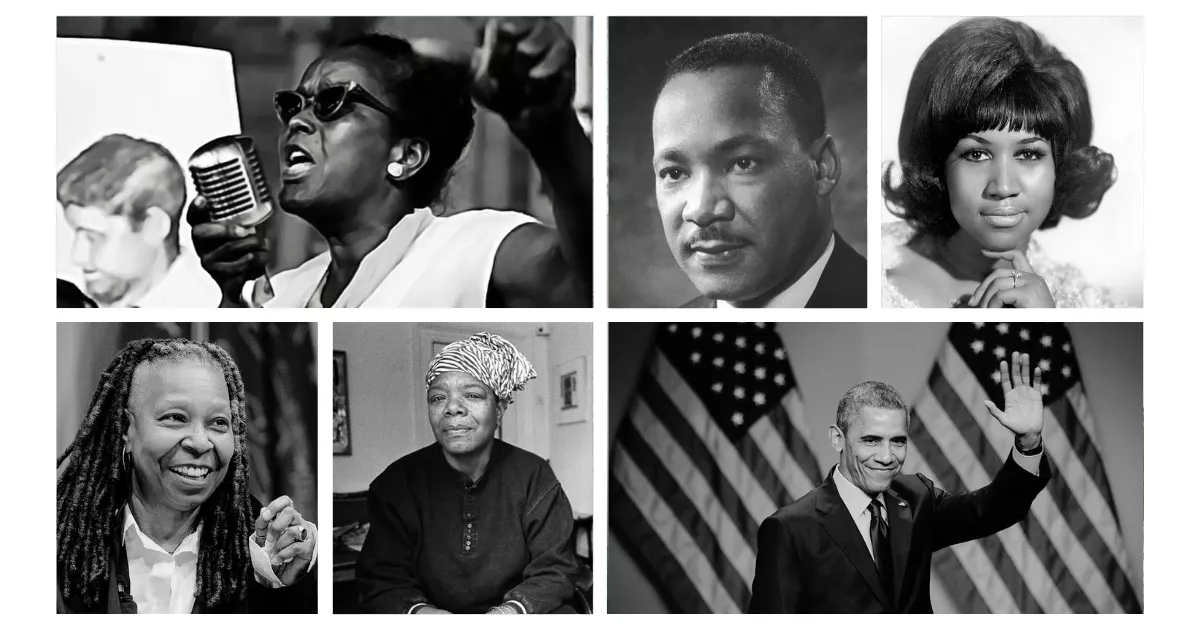
Why Black History Month Is More Important Now Than Ever
Every February, Black History Month serves as a reminder of the indelible impact of Black Americans on the United States. Yet, this annual observance is more than just a celebration—it is a clarion call to teach Black history as an integral part of American history. In recent years, the urgent need for this education has become increasingly clear as efforts to distort, suppress, and erase the truth about Black contributions to the nation have gained momentum. These efforts not only dishonor the past but threaten the future of a diverse, inclusive, and accurate understanding of America’s story.
Black History Is American History
Black history is not a subset of American history; it is foundational to it. From the moment enslaved Africans were forcibly brought to these shores, Black people have played a critical role in shaping every aspect of the nation. Their labor built the economic foundation of the United States, enabling its rise as a global power. Black thinkers, activists, and artists have propelled cultural, political, and scientific revolutions. Yet, these contributions are often marginalized or omitted entirely from mainstream narratives.
Consider the contributions of scientists like Dr. Charles Drew, who revolutionized blood storage, or Katherine Johnson, whose calculations were essential to NASA’s early space missions. Think of the groundbreaking literary works of Zora Neale Hurston, Langston Hughes, Maya Angelou, Toni Morrison, and James Baldwin; the musical artistry of Louis Armstrong, Harry Belafonte, Aretha Franklin, and Bessie Smith; the thespian artistry of Sidney Poitier, Morgan Freeman, Angela Bassett, Whoopi Goldberg, and James Earl Jones; the political leadership of figures like Shirley Chisholm, the Rev. Dr. Martin Luther King, Jr., Ella Baker, Medgar Evers, and Angela Davis; and more contemporary artists, activists, and leaders such as:
- Alicia Keys
- Amanda Gorman
- Ava DuVernay
- Barack Obama
- Chadwick Bozeman
- Denzel Washington
- Jasmine Crockett
- Kamala Harris
- Lizzo
- Maxwell Alejandro Frost
- Oprah Winfrey
- Samuel L. Jackson
- Stacey Abrams
- Ta-Nehisi Coates
- Zadie Smith
Black history is woven into the fabric of America’s progress, yet it is frequently overshadowed by myths and omissions that distort our collective understanding of the past.

The Ongoing Assault on Black History
In recent years, efforts to suppress or distort Black history have escalated, driven by political agendas that seek to sanitize the nation’s history. Across the country, legislation has been proposed or enacted to limit the teaching of systemic racism, the Civil Rights Movement, and even the legacy of slavery. These measures often masquerade as attempts to shield students from “discomfort.” Still, their true aim is to perpetuate ignorance and uphold a version of history that centers on whiteness while erasing the struggles and triumphs of marginalized communities.
For example, Florida’s recent restrictions on critical race theory and Advanced Placement African American Studies highlight the extent to which Black history is under attack. When curriculum guidelines are stripped of key topics like systemic racism, intersectionality, or the contributions of Black queer activists, students are deprived of a full and honest education.
This erasure doesn’t just harm Black students—it impoverishes all students by denying them the opportunity to grapple with the complexities of American history and think critically, morally, and ethically about the present and future.
Why Teaching Black History Is Essential
The fight to teach Black history is not just about preserving the past; it is about building a better future. Understanding Black history is essential for several reasons:
Black History Illuminates the Truth
Black history reveals the realities of systemic racism and the resilience of Black communities in the face of oppression. It challenges false narratives and exposes the roots of inequality that persist today. Without this knowledge, it is impossible to address issues like racial disparities in education, housing, healthcare, and the criminal justice system.
Black History Inspires Progress
The stories of Black innovators, activists, and leaders inspire action and remind us of the power of collective struggle. From the abolitionist movement to the fight for civil rights, Black history offers countless examples of courage and perseverance that can guide us in addressing contemporary challenges.
Black History Fosters Empathy
Teaching Black history helps students develop empathy by exposing them to diverse perspectives and experiences. It breaks down stereotypes and fosters a deeper understanding of the interconnectedness of all Americans.
Black History Strengthens Democracy
An informed citizenry is the foundation of a healthy democracy. By teaching Black history, we equip students with the tools to analyze the past and advocate for a more just and equitable society going forward.
Black History in Every Discipline
Black history is not confined to the pages of history textbooks. It spans every field and discipline, from science and technology to the arts and education. Ignoring these contributions is a disservice not only to Black Americans but also to the very disciplines they’ve shaped, including—but not limited to—science and technology, the arts, education, entertainment, business and finance, and government.
What Can Be Done?
The suppression of Black history is a systemic issue, but there are concrete steps we can take to support its preservation and proliferation:
- Advocate for inclusive curriculum. Support policies and initiatives that require the teaching of Black history in schools. Push back against legislation that seeks to restrict or whitewash history, and demand that textbooks and curricula reflect the diversity of the American experience.
- Invest in Black institutions. Support Historically Black Colleges and Universities (HBCUs), Black cultural institutions, and community organizations that preserve and promote Black history. These institutions play a vital role in safeguarding the stories often excluded from mainstream narratives.
- Educate yourself and others. Learning about Black history shouldn’t be confined to the classroom. Seek out books, documentaries, and other resources that explore the rich tapestry of Black contributions to America. Share this knowledge with friends, family, and community members.
- Celebrate Black history year-round. While Black History Month is an important observance, Black history should be celebrated and taught year-round. Integrate Black stories and perspectives into everyday conversations, education, and cultural activities.
A Call to Action
Black History Month is not just a time to reflect on the past—it is a time to act. Teaching Black history is not about division; it is about truth. It’s about recognizing the contributions of all Americans and building a society that values diversity, equity, and justice.
As we observe Black History Month this year, let us commit to protecting the legacy of Black Americans and ensuring that their stories remain a vital part of our national narrative. The future of our democracy depends on it.

